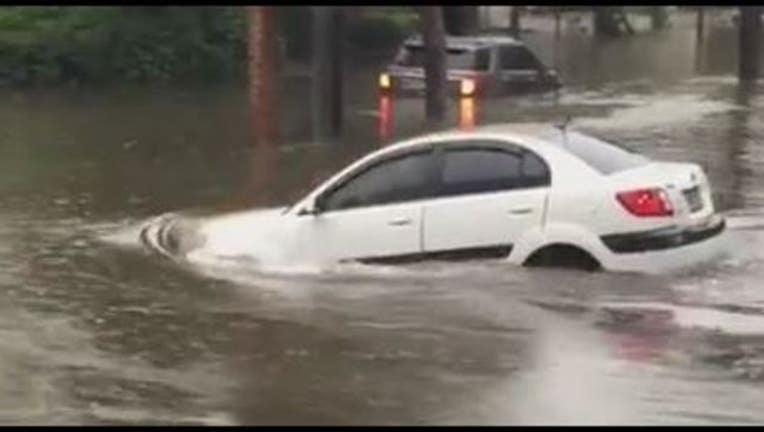Water damage: 10 tips for insurance claims

What’s worse than water damaging your home or car? Being denied an insurance claim. Here’s our advice for ensuring your claim receives maximum consideration:
YOUR HOME:
- TAKE PHOTOS: It is likely that insurance adjusters are going to be busy in the immediate aftermath and will be unable to get to your claim right away. So, snap photos of the situation. Pictures will help make your case. Show them to the adjuster when he/she arrives.
- CLEAN-UP: You don’t have to wait for a ‘thumbs up’ from your insurance company before you begin cleaning up. Do what is necessary to make your home safe. Keep records of the time you spend and receipts for any expenses you incur. Provide that documentation to the adjuster, too.
- ACT IMMEDIATELY: Water damage worsens over time, and can even spur mold (which is nightmare in and of itself). So, it’s crucial that you take action as soon as possible. Do not wait to: clean up, call your agent, and document everything that you do in response to the damage.
- READ YOUR POLICY: Be sure you know what your policy does and does not cover. Read it. Scrutinize it. The more informed you are about your coverage, the smoother the process of filing a claim will be.
- PREPARE TO NEGOTIATE: Forget the sappy TV commercials. Insurance claims are a financial transaction. It is unlikely an adjuster will just break out a checkbook and give you everything you are owed. Brace yourself for a round or two of negotiation. Keep calm, refer to your notes to make your case, and politely remain firm on the payment you deserve.
YOUR CAR:
- DRY IT OUT: Remove as much water as you can immediately. Not only are electrical connections susceptible to corrosion, excess moisture will breed mold – and that will compound your problems.
- DON’T DRIVE IT: Many components on modern vehicles are electronic, so moisture in the wrong place presents an electrical hazard. Also, if water seeped into the engine – specifically the cylinders -- it’s possible can do mechanical damage. Consider hiring a tow truck to pull it to the safety of a repair shop (see point 3).
- CALL A PRO: Let a mechanic assess the situation. Ask your insurance company if it prefers a specific shop (one it will pay for). A good auto shop should also have tools and techniques to professionally dry out your car.
- READ YOUR POLICY: Before you get to the nitty-gritty of talking about paying for repairs or replacement, be sure to read through your policy. It’s full of jargon, yes. But understanding your coverage could increase your payout.
- CONSIDER A TOTAL LOSS: If flood water rose past the floor boards, it’s possible your vehicle has been damaged forever. Some serious flood-related defects might fester for years. Talk with your insurance agent about how much money you’d receive for a total loss. It might make sense to apply that payment, albeit it reduced, to a newer (and drier) car.

